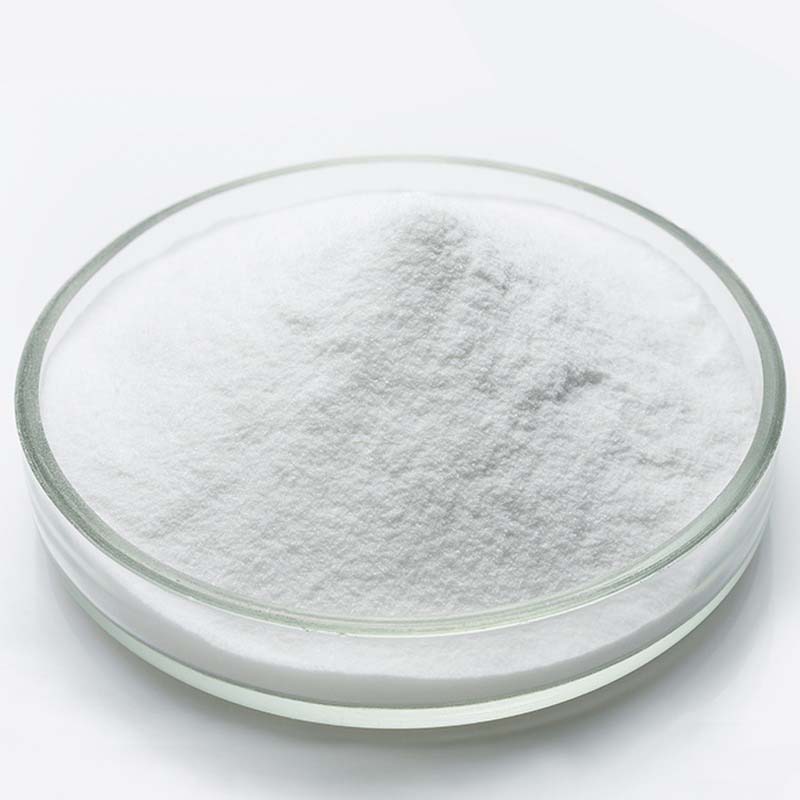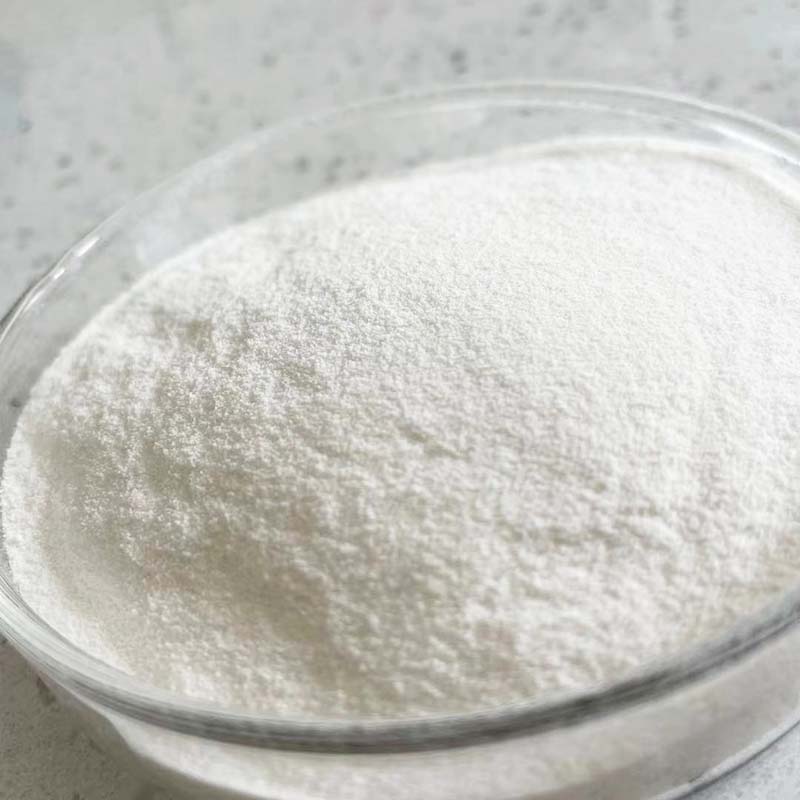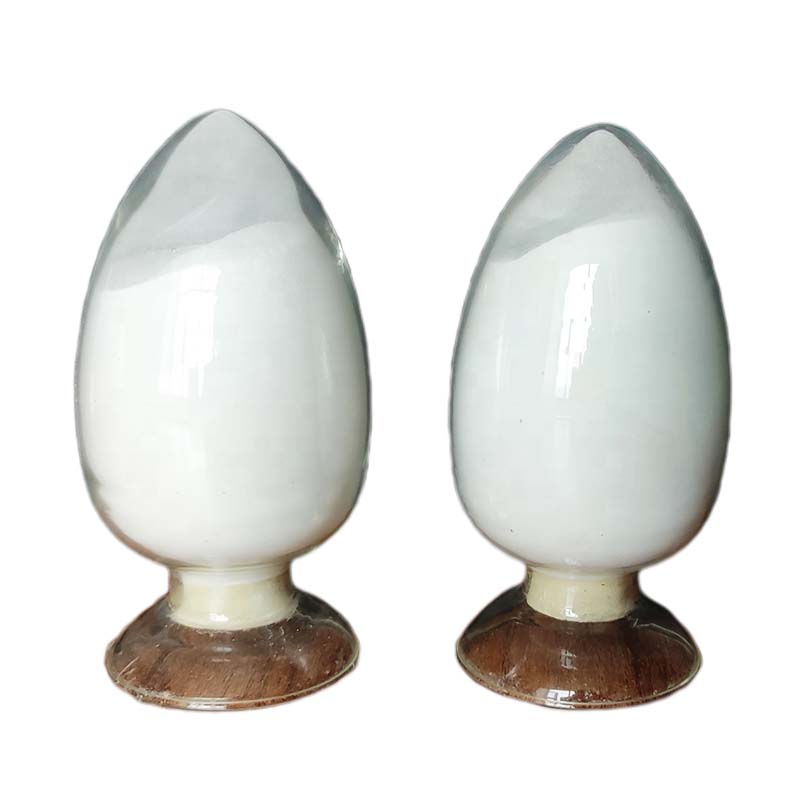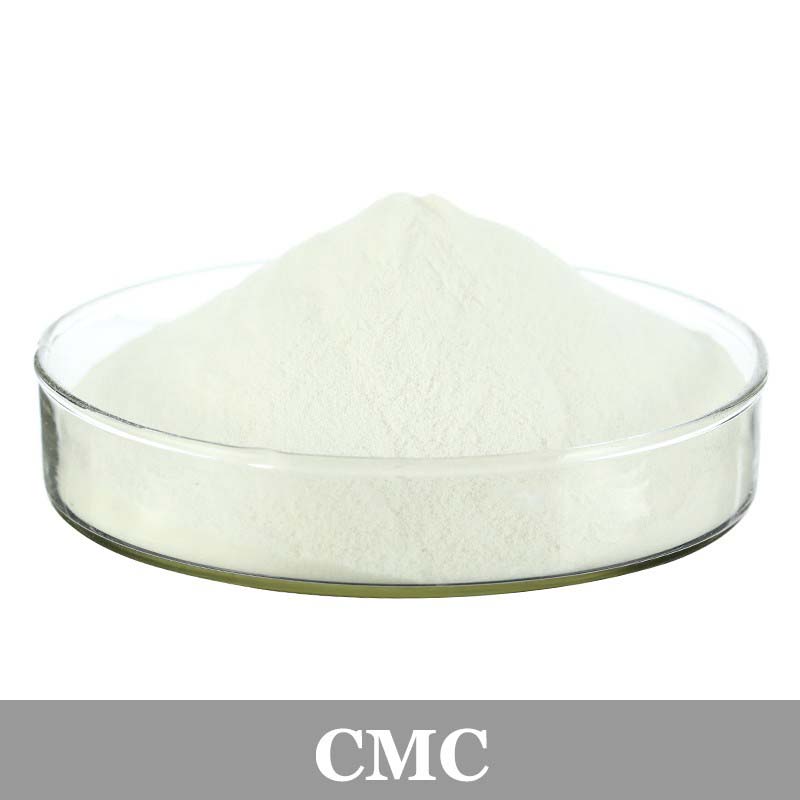Cold Water Soluble Modified Polyvinyl Alcohol Powder
Advancements in Industrial Polymers: Understanding Modified Polyvinyl Alcohol
The landscape of industrial materials is continually evolving, driven by demands for enhanced performance, sustainability, and versatility. Among the most critical advancements is the development of modified polyvinyl alcohol (PVA). A synthetic polymer known for its excellent film-forming, emulsifying, and adhesive properties, PVA has become indispensable across a multitude of sectors. The "modification" aspect refers to tailored adjustments to its molecular structure or compounding to impart specific, superior characteristics, such as improved water resistance, enhanced adhesion, increased thermal stability, or specific solubility profiles like cold water soluble PVA. These enhancements significantly expand its utility beyond that of conventional polyvinyl alcohol, making it a material of choice for demanding B2B applications, from advanced textiles and construction to specialized packaging and electronics.
Our focus delves into the technical intricacies, market dynamics, and practical applications of this advanced polymer, specifically high-purity polyvinyl alcohol powder, often characterized by its degree of hydrolysis and viscosity, such as polyvinyl alcohol 4 88, which denotes a specific grade suitable for particular industrial processes. This article aims to provide a comprehensive overview for technical professionals and decision-makers seeking optimal material solutions.
Manufacturing Process of Modified Polyvinyl Alcohol
The production of polyvinyl alcohol involves a sophisticated multi-stage chemical process, beginning with raw material synthesis and culminating in a meticulously tested final product. The core process typically includes polymerization of vinyl acetate, followed by partial or complete saponification, and then further modification steps. High purity is paramount, ensuring consistent performance in downstream applications.
Process Flow Schematic:
- 1. Raw Material Preparation: High-purity vinyl acetate monomer (VAM) is the primary precursor. Other reagents, such as initiators (e.g., peroxides, azo compounds), solvents (e.g., methanol), and chain transfer agents, are prepared and precisely measured. Quality control at this stage adheres to international standards to ensure raw material integrity.
- 2. Polymerization: VAM undergoes radical polymerization in a reactor, typically using methanol as a solvent. This process yields polyvinyl acetate (PVAc). Careful control of temperature, pressure, and initiator concentration is crucial to achieve the desired molecular weight distribution.
- 3. Saponification (Hydrolysis): The PVAc is then subjected to a saponification reaction, where ester groups are hydrolyzed to hydroxyl groups, forming polyvinyl alcohol. This is usually carried out using an alkaline catalyst (e.g., sodium hydroxide) or an acidic catalyst. The degree of saponification (or hydrolysis) is a critical parameter, defining the final PVA grade (e.g., partially hydrolyzed or fully hydrolyzed, like polyvinyl alcohol 4 88 which implies a specific hydrolysis level and viscosity). This step is central to customizing the polymer’s solubility and physical properties.
- 4. Modification & Purification: Post-saponification, the PVA solution undergoes further modification steps to impart specific enhanced properties. This can involve grafting, cross-linking, or blending with other polymers or additives to create modified polyvinyl alcohol with properties like enhanced water resistance, flexibility, or adhesion. The product is then purified through washing and filtration to remove impurities and by-products.
- 5. Drying & Grinding: The purified PVA is dried to a specific moisture content, often using spray drying or tray drying methods, producing polyvinyl alcohol powder. This powder is then ground and sieved to achieve the desired particle size distribution, ensuring consistency for various industrial applications.
- 6. Quality Control & Packaging: Each batch undergoes rigorous testing to meet stringent technical specifications. This includes molecular weight analysis, degree of hydrolysis, viscosity, ash content, pH, and heavy metal analysis. Testing standards conform to ISO 9001:2015 and relevant industry-specific norms (e.g., ASTM, ANSI). The final product is then packaged in moisture-proof container111s, often for target industries such as petrochemical, metallurgy, and water supply & drainage.
The advantages in typical application scenarios derived from this precise manufacturing include superior energy saving due to optimized material consumption and reduced process waste, along with enhanced corrosion resistance in specialty formulations, leading to extended service life of end products.

Key Industry Trends for Modified Polyvinyl Alcohol
The market for advanced industrial polymers is characterized by several dynamic trends, reflecting global shifts towards sustainable materials, advanced performance, and specialized applications. Manufacturers and end-users alike are seeking materials that not only deliver superior technical attributes but also align with environmental stewardship and cost-efficiency.
- Sustainability and Biodegradability: With increasing environmental regulations and consumer demand, the biodegradability of PVA makes this advanced polymer particularly attractive as a greener alternative to traditional synthetic polymers. Innovations are focused on enhancing its compostability and reducing its environmental footprint, especially for single-use applications and packaging films.
- High-Performance Formulations: There's a growing demand for modified polyvinyl alcohol variants that offer enhanced properties such as superior barrier performance against gases and oils, improved thermal resistance, and higher mechanical strength. These are crucial for specialized applications in food packaging, medical devices, and industrial coatings.
- Adoption in Advanced Manufacturing: Sectors like additive manufacturing (3D printing) and electronics are increasingly utilizing polyvinyl alcohol for its binding capabilities and water-solubility (e.g., for sacrificial support structures). Its precise control over viscosity, particularly for grades like polyvinyl alcohol 4 88, makes it ideal for these precision applications.
- Cold Water Soluble PVA Innovations: The development of advanced cold water soluble PVA films and powders is a significant trend, simplifying processing and reducing energy consumption in applications such as agrochemical packaging, laundry detergent pods, and medical waste bags. This specific modification enhances user convenience and broadens application scope.
- Market Expansion in Emerging Economies: Rapid industrialization and infrastructure development in emerging markets are fueling demand for polyvinyl alcohol powder in construction, textiles, and paper industries, driving global market growth for both standard and modified grades.

Technical Specifications and Parameters of High Purity Polyvinyl Alcohol
Understanding the precise technical specifications of this advanced polymer is crucial for B2B procurement and engineering design. Our polyvinyl alcohol powder, specifically the High Purity 99%min grade, adheres to stringent quality control standards, ensuring optimal performance across diverse industrial applications. The parameters below detail a typical high-performance grade, comparable to polyvinyl alcohol 4 88 in its excellent consistency and versatility.
| Parameter | Unit | Specification | Test Method |
|---|---|---|---|
| Purity (Min) | % | 99.0 | ISO 3262-1 |
| Degree of Hydrolysis | mol% | 87.0 - 89.0 (Partially Hydrolyzed) | ASTM D1396 |
| Viscosity (4% solution, 20°C) | mPa·s | 4.0 - 8.0 (e.g., PVA 4-88 implies this range) | JIS K6726 |
| Volatiles (Moisture) | % max | 5.0 | ASTM E1064 |
| Ash Content | % max | 0.5 | ISO 1172 |
| pH (4% solution) | - | 5.0 - 7.0 | ASTM D1287 |
| Granularity (100 mesh pass) | % min | 98.0 | JIS K6726 |
Diverse Application Scenarios of Modified Polyvinyl Alcohol
The versatility of this advanced polymer makes it an invaluable material across a broad spectrum of industrial applications. Its unique combination of properties—film-forming ability, adhesion, solubility control, and biodegradability—enables innovative solutions in demanding B2B environments.
- Adhesives and Binders: High-purity polyvinyl alcohol powder is extensively used as a binder in paper, textiles, and wood products. Its excellent adhesive strength, particularly for grades like polyvinyl alcohol 4 88, ensures robust bonding in challenging conditions. Modified variants offer improved water resistance for outdoor applications or enhanced flexibility for specialized composites.
- Textile Sizing Agents: In the textile industry, polyvinyl alcohol acts as a warp sizing agent, improving yarn strength and reducing breakage during weaving. Modified forms can offer easier desizing (especially cold water soluble PVA) and improved fabric feel, leading to higher quality textiles and reduced processing costs.
- Packaging Films: Water-soluble packaging, often utilizing specialized PVA variants, is gaining traction for unit-dose applications of detergents, agrochemicals, and medical disposables. This allows for convenient, mess-free dispensing and reduces plastic waste, particularly with readily degradable films.
- Construction Materials: As a redispersible polymer powder, polyvinyl alcohol enhances the workability, adhesion, and crack resistance of cement and mortar. Specific modifications can improve freeze-thaw stability and overall durability of construction composites, extending the service life of structures.
- Emulsion Polymerization: Acting as a protective colloid, modified PVA is crucial in the production of various emulsions, including vinyl acetate emulsions for paints, coatings, and adhesives. It stabilizes the emulsion, influencing particle size and film properties.
- Pharmaceutical and Medical: In healthcare, polyvinyl alcohol is utilized in tablet coatings, ophthalmic solutions, and hydrogels for wound care, benefiting from its biocompatibility and non-toxicity. Modified forms can offer controlled release properties for drug delivery systems.
- Paper Manufacturing: As a surface sizing agent and pigment binder, polyvinyl alcohol improves paper strength, printability, and oil/grease resistance. Tailored poly vinyl alcohol grades can enhance barrier properties for specialized paper packaging.
These varied applications underscore the critical role of specific poly vinyl alcohol modifications in meeting the evolving demands of industrial performance and sustainability.
Technical Advantages of Our Modified Polyvinyl Alcohol
Leveraging advanced synthesis and purification techniques, our high-purity modified polyvinyl alcohol offers significant technical advantages that translate into superior product performance and cost efficiencies for our B2B partners. These advantages extend across various critical parameters, setting our polyvinyl alcohol powder apart in the competitive market.
- Exceptional Film-Forming Capabilities: This advanced polymer forms strong, flexible, and highly transparent films with excellent barrier properties against oxygen and oil. This is crucial for packaging, protective coatings, and release liners, ensuring product integrity and extending shelf life.
- Superior Adhesion and Binding Strength: Whether used as an adhesive or a binder, its strong intermolecular bonding ensures robust performance in composite materials, paper, and textiles. This reduces delamination, improves structural integrity, and enhances the durability of final products.
- Tailored Solubility Profiles: Through precise control over the degree of hydrolysis and specific modifications, we offer grades from cold water soluble PVA to highly water-resistant types. This customization allows for energy-efficient processing and targeted performance in diverse environments. For instance, polyvinyl alcohol 4 88 offers a balanced solubility and viscosity ideal for various coating and sizing applications.
- High Purity and Consistency: Our 99%min purity ensures minimal impurities, leading to consistent performance, reduced batch variations, and improved process reliability for our clients. This high standard minimizes costly rework and optimizes production cycles.
- Enhanced Mechanical Properties: Depending on the specific modification, our specialized PVA can exhibit increased tensile strength, elongation at break, and abrasion resistance, making it suitable for high-stress applications.
- Eco-Friendly and Biodegradable: Aligning with global sustainability goals, our poly vinyl alcohol is inherently biodegradable, offering an environmentally responsible alternative without compromising performance. This reduces ecological impact and supports green initiatives.
These advantages collectively contribute to enhanced product quality, operational efficiency, and a strengthened market position for businesses utilizing our advanced polymer solutions.

Vendor Comparison: Choosing Your Modified Polyvinyl Alcohol Supplier
Selecting the right supplier for modified polyvinyl alcohol is a critical decision that impacts product quality, supply chain reliability, and overall project success. While many suppliers offer polyvinyl alcohol powder, key differentiators lie in product purity, customization capabilities, technical support, and logistical efficiency. The table below outlines a comparison of typical vendor offerings, emphasizing the value proposition of a specialized provider focused on high-purity and tailored solutions.
| Feature/Vendor | Pezetech (Example) | Generic Vendor A (Mass Market) | Generic Vendor B (Regional Focus) |
|---|---|---|---|
| Product Purity | 99%min (High Purity) | 97-98% (Standard Grade) | 96-98% (Varies) |
| Customization Capability | Extensive (Hydrolysis, Viscosity, Specific Modifications like cold water soluble PVA) | Limited to Standard Grades | Moderate (Basic adjustments) |
| Technical Support & R&D | Dedicated team, collaborative R&D for application-specific solutions | Standard documentation, limited direct support | Basic technical assistance |
| Certifications & Compliance | ISO 9001, REACH, FDA-compliant grades available | ISO 9001 (basic) | Local certifications only |
| Consistency of Supply | Robust global supply chain, multiple production sites | Dependent on single/few sites | Regional logistics only |
| Pricing Strategy | Value-based for high performance and customization | Cost-focused for commodity volumes | Competitive in local market |
Our commitment to delivering high-purity poly vinyl alcohol, including specialized grades like polyvinyl alcohol 4 88, coupled with comprehensive technical support and flexible customization, ensures our clients receive not just a product, but a complete solution tailored to their specific industrial needs.
Customized Solutions for Specialized Modified Polyvinyl Alcohol Requirements
Recognizing that off-the-shelf solutions may not always suffice for complex industrial challenges, we specialize in providing customized modified polyvinyl alcohol formulations. Our expertise in polymer chemistry and process engineering allows us to fine-tune properties such as degree of hydrolysis, molecular weight, viscosity, and chemical modifications to meet the most exacting specifications of our B2B clients. This bespoke approach ensures optimal performance, efficiency, and cost-effectiveness for niche applications.
- Tailored Hydrolysis Grades: From fully hydrolyzed polyvinyl alcohol for maximum strength and water resistance to partially hydrolyzed grades, including specific types like polyvinyl alcohol 4 88, we can adjust the degree of hydrolysis to control solubility and adhesion characteristics precisely.
- Viscosity Optimization: We can engineer polyvinyl alcohol powder with specific viscosity profiles to ensure compatibility with various application methods, whether it's spray coating, dipping, or high-speed mixing. This optimization is crucial for process consistency and final product quality.
- Enhanced Functional Properties: Through chemical modification, we develop specialized PVA products with enhanced features such as improved flexibility, increased adhesion to specific substrates, flame retardancy, or anti-static properties. For instance, specific formulations can yield advanced cold water soluble PVA films for quick-release packaging.
- Particle Size Distribution: We offer customized particle size distributions for poly vinyl alcohol to ensure optimal dispersion and dissolution rates, which is critical for formulations in construction, ceramics, and textiles.
- Collaborative R&D: Our team works closely with clients' engineers and product developers to understand unique challenges and co-create innovative polymer solutions, ensuring seamless integration into existing manufacturing processes.
This dedication to customization ensures that our clients receive a polymer solution that is perfectly aligned with their technical requirements and strategic objectives, fostering innovation and competitive advantage.
Application Case Studies: Real-World Impact of Our Advanced PVA Solutions
Our advanced PVA solutions have consistently delivered measurable improvements and innovations across various industrial applications. These case studies highlight the tangible benefits our high-purity polyvinyl alcohol powder brings to our partners.
Case Study 1: Enhancing Biodegradable Agricultural Films
A leading agricultural technology firm sought to develop fully biodegradable mulch films to reduce plastic waste in farming. Traditional PVA lacked sufficient mechanical strength and controlled degradation rates for this demanding outdoor application. We collaborated to develop a specialized modified PVA grade with enhanced tensile strength and a slower, more predictable degradation profile tailored to crop cycles. The solution enabled the client to produce films that provided effective weed suppression and moisture retention throughout the growing season, then naturally biodegraded post-harvest, significantly reducing labor costs for film removal and environmental impact. This resulted in a 25% reduction in plastic waste and a 15% improvement in crop yield due to optimal soil conditions.
Case Study 2: Improving Performance of High-Strength Adhesives
An industrial adhesive manufacturer required a more robust and stable binder for their high-performance wood adhesives, critical for structural applications. Their existing polyvinyl alcohol 4 88 grade provided good initial tack but lacked long-term moisture resistance. Our team engineered a modified polyvinyl alcohol variant with specific cross-linking capabilities, offering superior water resistance and bond strength even under high humidity. This modification, while maintaining the processing characteristics of a fine polyvinyl alcohol powder, allowed the client to achieve a 30% increase in shear strength and a 40% improvement in water resistance for their finished adhesive products, expanding their market reach into exterior applications.
Case Study 3: Optimizing Pharmaceutical Tablet Coatings
A pharmaceutical company sought a more efficient and compliant coating solution for their orally administered tablets. They needed a polymer that offered excellent film-forming properties, rapid dissolution in the stomach, and was compliant with FDA standards. We provided a specifically engineered poly vinyl alcohol grade designed for pharmaceutical applications, ensuring high purity and consistent performance. This tailored polyvinyl alcohol reduced coating cycle times by 10% and significantly improved tablet surface smoothness and batch consistency, thereby reducing production costs and enhancing product quality and patient acceptance.

Frequently Asked Questions (FAQ) about Modified Polyvinyl Alcohol
Q1: What distinguishes modified polyvinyl alcohol from standard PVA?
A1: Modified polyvinyl alcohol undergoes additional chemical or physical treatments during or after synthesis to enhance specific properties. This could include altering the degree of hydrolysis (e.g., to create polyvinyl alcohol 4 88 or cold water soluble PVA), molecular weight, introducing co-monomers, or cross-linking agents. These modifications improve attributes such as water resistance, adhesive strength, flexibility, thermal stability, or biodegradability, tailoring the polymer for specialized applications beyond what standard polyvinyl alcohol powder can offer.
Q2: Is our specialized PVA biodegradable?
A2: Yes, generally. Polyvinyl alcohol itself is recognized for its biodegradability under aerobic conditions by various microorganisms. Our modified PVA maintains this eco-friendly characteristic, making it a sustainable choice for many applications. Specific degradation rates can be influenced by the type and extent of modification, as well as environmental conditions.
Q3: How do I select the correct grade of polyvinyl alcohol for my application?
A3: Selection depends on critical parameters such as desired water solubility, viscosity requirements, adhesive strength, film flexibility, and intended application temperature. Key indicators like the degree of hydrolysis and molecular weight (often reflected in viscosity numbers like those for polyvinyl alcohol 4 88) are crucial. We recommend consulting with our technical specialists who can guide you through our product portfolio, including specific modified PVA grades, to match your precise needs.
Q4: What is the typical lead time for large orders of polyvinyl alcohol powder?
A4: Lead times for bulk orders of our high-purity polyvinyl alcohol powder typically range from 2 to 4 weeks, depending on the specific grade, order volume, and current production schedule. For customized modified PVA solutions, lead times may vary based on development and testing requirements. We maintain strategic stock levels and operate efficient logistics to minimize delivery times and ensure supply chain reliability for our B2B clients.
Our Commitment to Partnership: Lead Time, Warranty, and Support
As a dedicated B2B partner, we understand the critical importance of reliable supply, quality assurance, and responsive support. Our commitment extends beyond delivering high-quality PVA products to ensuring a seamless and trustworthy experience for every client.
- Lead Time & Fulfillment: We strive for efficiency in our global supply chain. Standard orders for our high-purity polyvinyl alcohol powder typically have a lead time of 14-28 calendar days from order confirmation to dispatch, subject to volume and destination. For urgent requirements or highly specialized modified PVA grades, expedited production and shipping options are available. Our logistics team works diligently to ensure on-time delivery and provide transparent tracking information.
- Quality Assurance & Warranty: Every batch of our modified PVA undergoes rigorous quality control testing in accordance with ISO 9001:2015 standards and relevant industry benchmarks (e.g., ASTM, JIS). We offer a comprehensive warranty ensuring that our products meet the specified technical parameters and are free from manufacturing defects for a period of 12 months from the date of delivery when stored and used as per our recommendations. Any deviation from agreed-upon specifications will be addressed promptly and professionally.
- Expert Customer Support: Our dedicated team of technical sales representatives and polymer scientists is available to provide unparalleled support, from initial consultation and product selection to post-purchase troubleshooting. We offer in-depth technical data, safety information, and application guidance for all our polyvinyl alcohol products. Our goal is to build long-term partnerships through continuous support and value creation, whether you're inquiring about polyvinyl alcohol 4 88 or a custom cold water soluble PVA solution.
We are committed to being more than a supplier; we aim to be an extension of your R&D and manufacturing capabilities, delivering reliable solutions and exceptional service.
Conclusion: The Future of Industrial Polymers with Modified Polyvinyl Alcohol
The continuous innovation in modified polyvinyl alcohol technology represents a significant leap forward in polymer science, offering unprecedented opportunities for various industries. From enhancing sustainability through biodegradable films to delivering superior performance in high-tech adhesives and advanced construction materials, its versatility and adaptability are driving a new era of material solutions. Our commitment to high purity, precise modification, and comprehensive technical support positions us as a premier partner for businesses seeking to leverage the full potential of this advanced polymer. By focusing on customized solutions and adhering to stringent quality standards for our polyvinyl alcohol powder, we empower our clients to achieve their most ambitious product development and operational efficiency goals, ensuring a future where innovation and sustainability go hand-in-hand.
Authoritative References
- Finch, C. A. (1992). Polyvinyl Alcohol: Properties and Applications. John Wiley & Sons.
- Miyake, M., & Imoto, M. (2007). Poly(vinyl alcohol). In Polymer Science: A Comprehensive Reference (Vol. 6, pp. 191-209). Elsevier.
- Peppas, N. A., & Merrill, E. W. (1977). Poly(vinyl alcohol) hydrogels. Journal of Applied Polymer Science, 21(8), 2269-2281.
- Chiellini, E., & Solaro, R. (Eds.). (2000). Biodegradable Polymers and Plastics. Springer Science & Business Media.
- Mark, H. F. (1990). Encyclopedia of Polymer Science and Engineering (Vol. 17). John Wiley & Sons.
-
HPMC Gel: Premium Hypromellose Thickener for Diverse UsesNewsAug.30,2025
-
9049 76 7 Application GuideNewsAug.29,2025
-
Hydroxy Methyl Propyl Cellulose | HPMC Thickeners & BindersNewsAug.29,2025
-
Hydroxyethyl Cellulose Manufacturer: Superior Thickening & Gel SolutionsNewsAug.28,2025
-
Hydroxyethyl Methyl Cellulose Construction UseNewsAug.27,2025
-
Hydroxy Propyl Methyl Cellulose HPMC Food ThickenerNewsAug.27,2025








